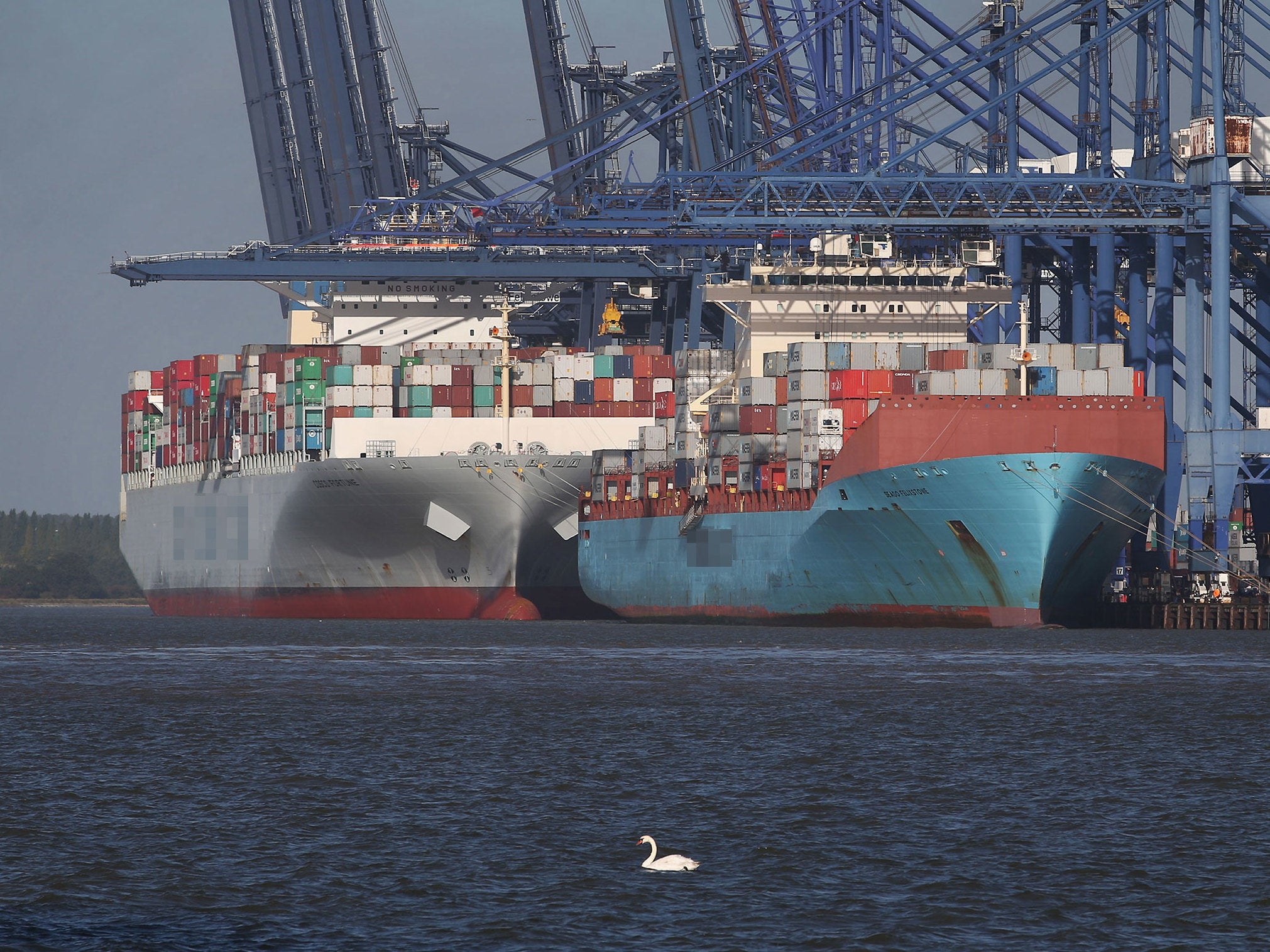Brexit: Freight trade across the Channel could fall up to 87 per cent under no-deal scenario, leaked document reveals
Decline of freight trade could last up to six months, estimates suggest

Your support helps us to tell the story
From reproductive rights to climate change to Big Tech, The Independent is on the ground when the story is developing. Whether it's investigating the financials of Elon Musk's pro-Trump PAC or producing our latest documentary, 'The A Word', which shines a light on the American women fighting for reproductive rights, we know how important it is to parse out the facts from the messaging.
At such a critical moment in US history, we need reporters on the ground. Your donation allows us to keep sending journalists to speak to both sides of the story.
The Independent is trusted by Americans across the entire political spectrum. And unlike many other quality news outlets, we choose not to lock Americans out of our reporting and analysis with paywalls. We believe quality journalism should be available to everyone, paid for by those who can afford it.
Your support makes all the difference.Freight trade across the Channel could fall by up to 87 per cent in the event of a no-deal Brexit, a leaked Border Force document has revealed.
In the event that Britain is unable to secure a deal with the European Union, the decline of freight trade could last up to six months, estimates in contingency plans drawn up for the government say.
The figures were found in an “official sensitive” document that was titled Freight Traffic Contingency Assumptions. It was part of an internal government presentation that was leaked to Sky News.
In what is said to be in reference to traffic from Dover-Calais and the Channel Tunnel, a slide from the presentation reads: “The reasonable worst case flow through the Short Straits is reduced to between 13 per cent and 25 per cent of current capacity for a period of between three-six months.”
Another section says: “The French will apply at least the legal minimum of third country customs controls on all goods and sanitary and phytosanitary (SPS) checks on specified food and agricultural products.
“This includes the imposition of 100% customs documents checks.”
The presentation is dated from late November last year and was thought to have been discussed, although the numbers may have been updated since.
The Home Office declined to comment on the accuracy of the document, which is also said to assume a “new normal” for cross-Channel freight will be 50 to 100 per cent of current flows “until significant changes are made to improve border arrangements” following the initial shock.
A spokeswoman for the Road Haulage Association said: “We need clarity. With such a short time to go, we still haven’t got clarity as to how future processes are going to work.
“This is why we are desperate for a transition period so processes can be finalised. Otherwise, the damage to the supply chain will be considerable.”
Agencies contributed to this report
Join our commenting forum
Join thought-provoking conversations, follow other Independent readers and see their replies
Comments